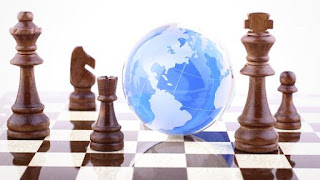What is geopolitics?
The Word geopolitics derives from the words geo (geography) and politics, in that way, the first definitions of the term show the relationship among nations located by the use of geography and their political links.
In the 20th century, the discipline starts taking relevance due to the different wars, the role of the subject begins to increase and relate to different and nonexistent fields. Wars turn into catalysts and an effective system to measure the power and the priorities in terms of geopolitics in the world.
Nowadays, it is a discipline that is vital when planning the foreign agenda of states, hand in hand with international relations, some trends are created around the geographical location and its relationship with the outer layers. Today, it is common to talk about planning policies by using strategies each government determine due to its position in the world and its geopolitical concerns, some terms like geostrategy derive from that idea.
The relation of geopolitics and the rest of international disciplines has been widening, in the way that it is more necessary to take into account the different scenarios that globalization presents. It can be stated under the current circumstances, that geopolitics influence a number of issues in the world, for instance climate change, natural resources, economic integration due to decision making is an everyday process and such decisions are conditioned by the relationships among countries, corporations and individuals.
In conclusion, geopolitics is in constant movement, you won’t find the same world environment for decision making. In a few words geopolitics can be defined as a picture of the world in a determined moment and in that sense, the picture you “take” in 2013, won’t be the same you “take” in 2016.
Gracias por dar click en alguno de los banner publicitarios para apoyar al talento nacional.
Gracias por dar click en alguno de los banner publicitarios para apoyar al talento nacional.



Comentarios
Publicar un comentario